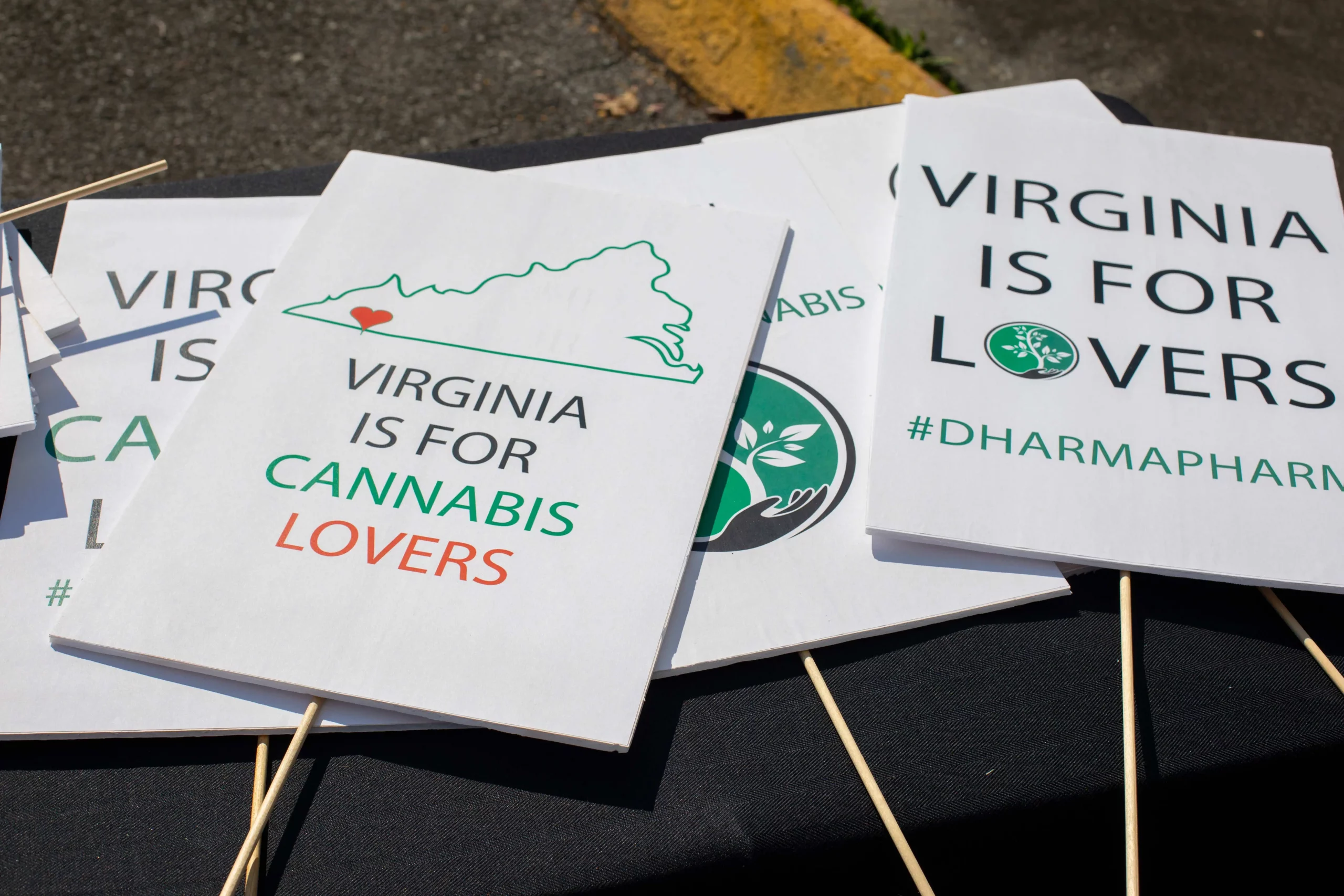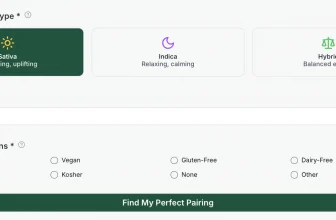
Is Marijuana Legal in Virginia? As of July 1st, 2022, Virginia became the first southern state to legalize marijuana.
The legislation responsible for this change was a pipe dream as recently as 2021 when a hardline Republican committee still oversaw the criminal code and vehemently opposed any change to prohibition.
Below, we look at the ins and outs of this new law, as well as its strengths and drawbacks.
The Letter of the Law
As of July 1st, anyone 21 and older may possess up to one ounce of marijuana. Carrying anything between an ounce and a pound is punishable by a $25 fine.
Things escalate alarmingly past the 1-lb. mark. If you carry more than a pound and get caught, you could be charged with a felony, spend up to 10 years in prison, and pay up to $250,000 in fines — a 10,000x increase.
If that doesn’t startle you, you misread it.
For those under 21, a first offense results in compulsory substance abuse education/treatment and a $25 fine.
As is the case in many states, drug sales are still illegal. However, gifting up to one ounce of marijuana is still allowed. This has led many businesses to sell legal products at conspicuously high prices and include a “free” gift of marijuana with the purchase. This type of practice is explicitly made illegal by the bill’s language.
It is illegal to use marijuana or offer it to anyone else in public. A first offense carries a $25 fine, and a second offense mandates the same fine plus compulsory drug treatment. Third offenses are Class 4 misdemeanors. Marijuana possession on public K-12 school grounds is a Class 2 misdemeanor.
As Senator Scott Surovell (D-Fairfax) put it, “This is not going to generate some ganja fest at Jiffy Lube pavilion out in the parking lot, because that is smoking in public.”
Driving with Marijuana
Because it’s more difficult to prove a driving-while-intoxicated (DWI) charge for marijuana than for alcohol, for marijuana, an “open container” is defined as “any vessel containing marijuana except the originally sealed manufacturer’s container.”
The problem is that retail sales aren’t going to begin legally until 2024, which means you’ll have to wait to officially buy weed from state-licensed dispensaries. What does this mean for individuals carrying a legal amount in a non-retail container?
The best advice is to keep it out of your car altogether until retail laws pass.
Home Grows
Since retail sales won’t be legal until 2024, a lot of marijuana enthusiasts are also likely to become gardening enthusiasts as well.
Adults are allowed to grow up to four marijuana plants per household, though these plants cannot be visible from the street. The law also states, with notable vagueness, that “precautions” need to be taken to prevent minors from accessing the plants.
Any homegrown plants need to carry a tag with the grower’s driver’s license/state ID number, name, and a note that the plant is for personal use. If someone grows between four and 10 plants, they risk a $250 fine. That fine grows all the way up to ≥50 plants, which constitutes felony charges.
Inconsistencies to Be Aware Of
It is illegal to manufacture concentrated solutions from marijuana grown at home.
Due to the ambiguities around the law, the only legal way to procure seeds or cuttings for home grows is by receiving them as a gift. There is a bit of an unspoken “don’t ask, don’t tell” ethos among regulators, particularly when purchasing from state-licensed growers.
Another gray area to be aware of is the clear conflict between being allowed to own one ounce and being allowed to grow up to four plants. Four plants could easily produce many times more than an ounce.
Marijuana advocates believe the issue deserves caution, but they also say the one-ounce law is designed to limit the amount a person can carry on them in public. Therefore, many believe the one-ounce limit doesn’t apply to what you have in your home.
Changes to Criminal Convictions
Under the new law, those convicted of serious marijuana-related crimes in the past can now petition to clear their records. Lawmakers are scheduled to discuss a decision that could allow those currently imprisoned to request a resentencing. This is in line with moves on the federal level to reduce the harm caused by anti-marijuana prosecutions.
As Senator Louise Lucas (D-Portsmouth) said about the initiative, “That was urgent to me, because now we’re going to be in a situation where you’ve got people still sitting in jail for the very thing that we’ve already legalized.”






